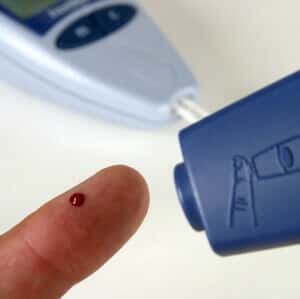
What is the best way to diagnose diabetes? For decades it was the oral glucose tolerance test (OGTT). But it’s time consuming and inconvenient for patients. They have to consume a sugary drink that is not very tasty and then they have to hang out at a laboratory and have their blood drawn for up to three hours. The simple blood draw to test for hemoglobin A1c (HbA1c) is much faster and easier. How accurate is it? This person has concerns about diabetes tests.
Q. I am confused about diabetes tests. I had some blood sugar measurements near 300. That means I have diabetes. However, my HbA1C blood test was always below 6, which I understand is considered normal. No doctor has been able to explain this discrepancy.
Then my physician ordered that nasty lengthy test where you have to have your blood sugar measured three times in two hours after you drink some sugary stuff. This test confirmed that my body can’t handle sugar well. The levels were out of whack.
I started taking medication for diabetes and was able to get my blood sugar levels down. Why didn’t the A1C test EVER indicate any issue?
A. A new study suggests that the oral glucose tolerance test (OGTT) you describe is far more accurate than the AIC blood test doctors often use. The researchers conducted both tests for 9,000 people who had not been diagnosed with diabetes (Annual Meeting of the Endocrine Society, March 2019). The OGTT revealed diabetes in many people whose levels of hemoglobin A1c were within the normal range.
Readers Weigh in on Diabetes Tests:
John in Baltimore, MD states:
“Thank you for publishing this. I was reassured by my latest glucose and A1C test results that used to be in the prediabetic range and then went down to the top of the normal range. But I will ask my doctor about the OGTT test that I never heard of before. It sounds tough though with so many blood draws.”
Nancilee in Chicago notes:
George in Chapel Hill wonders:
“If I understand this correctly, a HbA1c level below 7% does not guarantee that one does NOT have diabetes and that an OGTT is better at detecting it. But if the HbA1c level is ABOVE 7%, there’s no need for the OGTT, is there?”
George, once the HbA1c is above 7% there is a strong likelihood a patient has diabetes. At that point we would recommend treatment and daily blood glucose testing.
Want to Know More?
Here is a link to much more in-depth information about diabetes tests:
What is the Best Test To Diagnose Diabetes | HbA1c or OGTT?
If you would like to learn more about controlling your blood sugar, we suggest our Guide to Managing Diabetes. Anyone who would like a copy, please send $3 in check or money order with a long (no. 10) stamped (71 cents), self-addressed envelope:
Graedons’ People’s Pharmacy, No. DM-11
P. O. Box 52027
Durham, NC 27717-2027
It can also be downloaded for $2 from the website: www.peoplespharmacy.com.



We only wish that were the case. Not everyone needs an OGTT, but if there is a family history of diabetes and/or some elevated HbA1c levels, an OGTT might be worth the inconvenience.